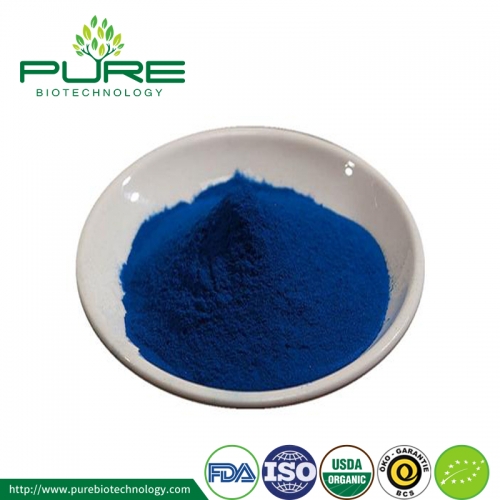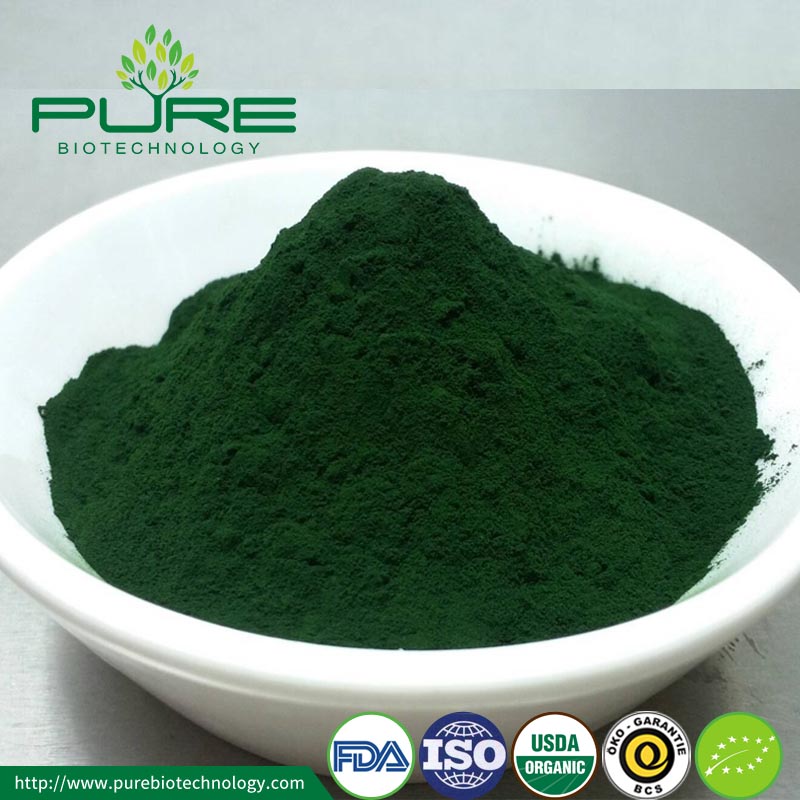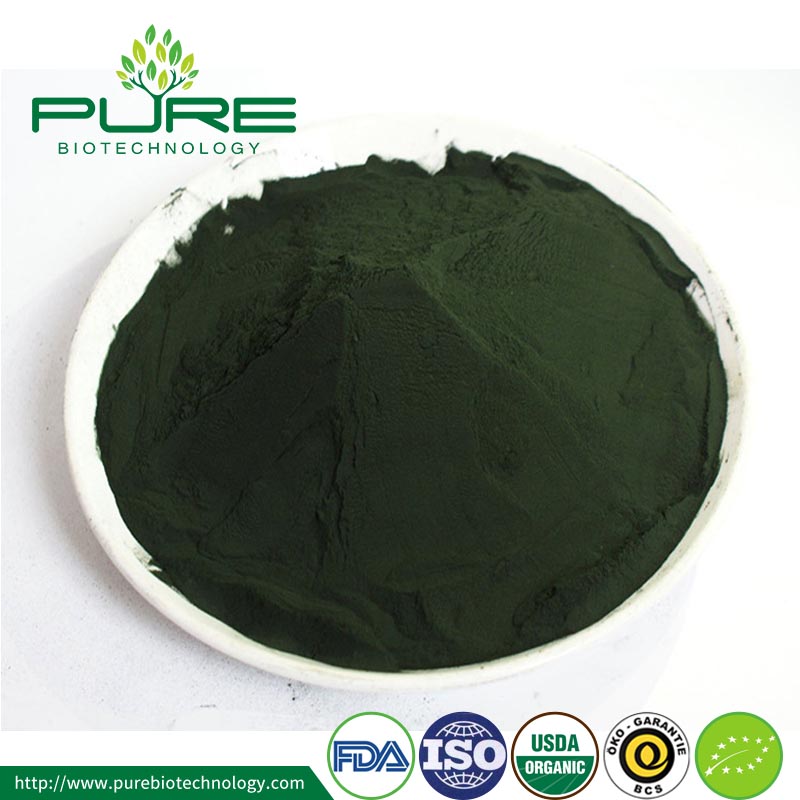
Microalgae, the category most often used for nutraceuticals, are tiny photosynthetic organisms similar to plants. They contain chlorophyll and feed themselves through photosynthesis, taking energy from the sun and converting it to sugars and proteins. Their home in nature’s waterways, often under intense conditions, have caused algae to evolve some very powerful health benefits.
PHYCOCYAIN(BLUE SPIRULINA)

Phycocyanin(Blue spirlina) is a blue pigment derived from blue-green algae. Along with carotenoids, it’s one of the most potent algal pigments, playing an important role in photosynthesis and assisting with chlorophyll functions. In terms of health benefits, phycocyanin has:
As a commodity, phycocyanin has been gaining notoriety as a product with interesting market potential. Due to its natural fluorescence, it’s used in medicine and genetics as a tracer, and as a key element of UV-protected clothing.
It’s most promising usage is a natural dye for the food industry. More conscious consumers and regulatory changes are turning up the pressure for brands to move beyond synthetic dyes. Pure blue is notoriously difficult to find in nature, making it difficult to farm or harvest for commercial purposes. As the only FDA-approved natural blue colourant, Phycocyanin is rapidly becoming a hot commodity in categories ranging from smoothies and yogurts to confectionary and cocktails.

Chlorella is a green, freshwater algae (Chlorella vulgaris) that has gained a reputation as a powerful superfood. Full of amino acids, peptides, proteins, vitamins, and minerals, Chlorella is a supplement with wide-ranging potential health benefits.
Consumer and industry awareness is increasing as more and more compelling research is published around the benefits of this algae-based supplement. Market size has been growing steadily with continued growth expected in both short and medium term.
Pure Biotechnology supplies top-quality chlorella, with organic, non-GMO, and other certifications.

Spirulina, often referred to as blue-green algae, is a single cell plant-like organism that grows in both fresh and saltwater. Spirulina was consumed by the ancient Aztecs and today has become well-known as a high-nutrient, low-calorie food that contains a lot of nutrition in a small amount of powder.
Full of protein, iron, magnesium, and vitamins B2 and B3, spirulina has been shown to have a wide-array of health benefits:
According to recent reports, the global spirulina market size hit $346 million in 2018, and is projected to reach $779 million by 2026, growing at 10.6% annually. These figures match the trend in popularity of powdered supplements in general and spirulina in particular.